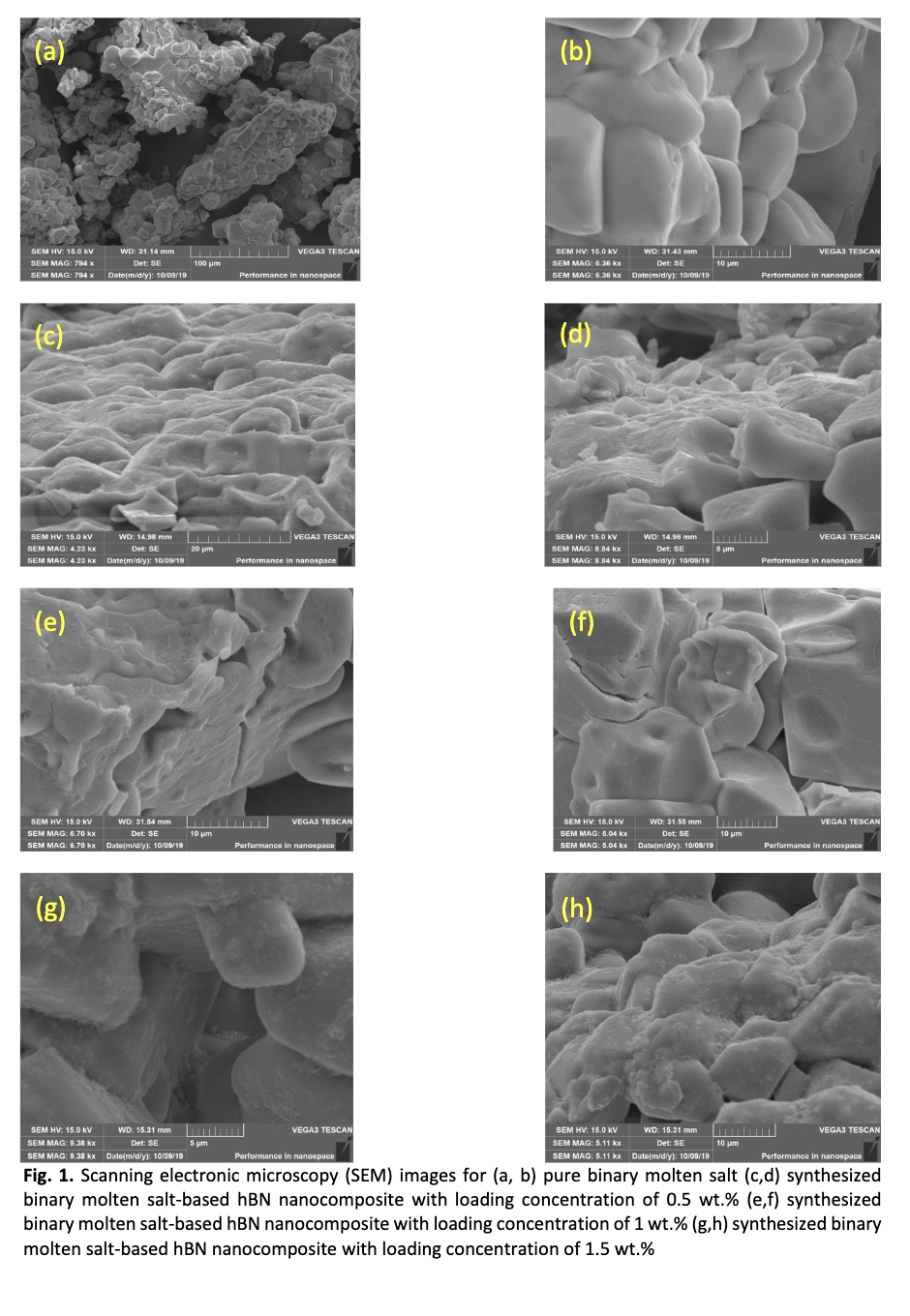Experimental Assessment of a Novel Eutectic Binary Molten Salt-based Hexagonal Boron Nitride Nanocomposite as a Promising PCM with Enhanced Specific Heat Capacity
Keywords:
Molten salt, hBN, TES, Specific heat capacity, PCMAbstract
In this study, novel nanocomposites containing the pre-defined mass ratio of binary molten salt (NaNO3-KNO3: 60-40 wt.%) dispersed with hexagonal boron nitride (hBN) nanoparticles with nominal size of 70 nm, were prepared through one-phase preparation method. Four different types of samples including pure binary molten salt and binary molten salt-based hBN nanocomposites with loading concentrations of 0.5, 1 and 1.5 wt.% were prepared. The proposed amount of sodium nitrate and potassium nitrate was added to certain amount of DI water, comprising with 0.5, 1 and 1.5 wt.% concentration of hBN nanoparticles. Scanning electronic microscopy (SEM) was conducted to evaluate the uniformity of the synthesized binary molten salt-based hBN nanocomposites. The SEM images revealed uniform dispersion of hexagonal boron nitride nanoparticles and fractal-like structures were observed clearly. Specific heat capacity (cp) and melting temperature measurements were performed using a differential scanning calorimetry (DSC). The experimental achieved data for melting temperature proved that hexagonal boron nitride nanoparticles do not affect the melting temperature of the synthesized nanocomposites. The experimentally achieved data for the average cp values of the binary molten salt in solid and liquid phases were 1.14 and 1.13 J/g K, respectively. While, the average cp values for the binary molten salt-based hBN nanocomposite with the highest loading concentration of nanoparticles (1.5 wt.%) in solid and liquid phases were 2 and 3.17 J/g K, respectively. The measured average cp value in the liquid phase for binary molten salt-based hBN nanocomposite with the highest loading concentration (1.5 wt.%) of nanoparticles revealed enhancement of ~180% in comparison with pure binary molten salt. Thermal stability measurements expressed enhancement of thermal stability in binary molten salt induced with hBN nanoparticles. Binary molten salt-based hBN nanocomposite with loading concentration of 1.5 wt.% represented ~16% enhancement in thermal stability over the binary molten salt.
Downloads





























